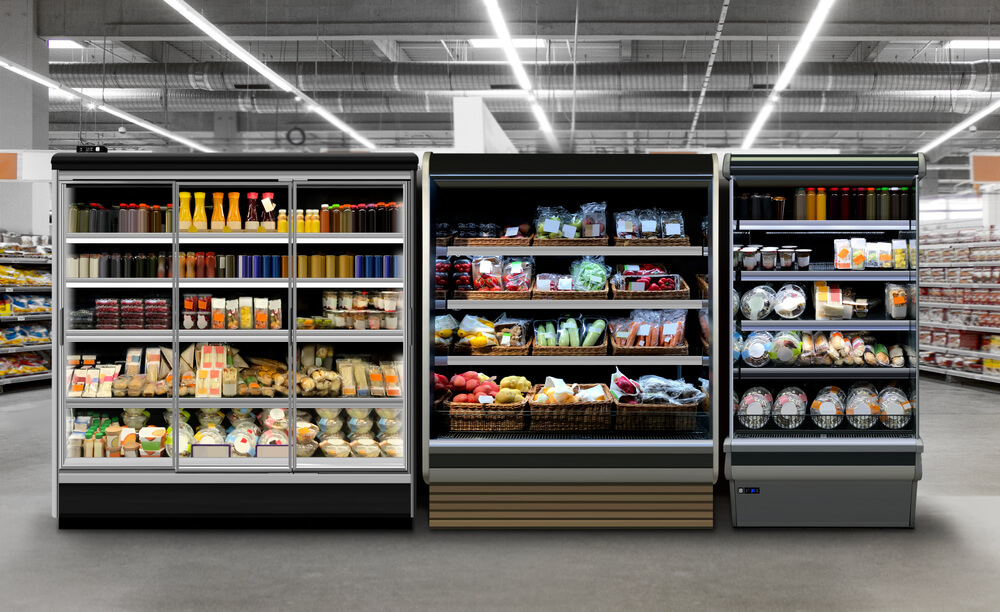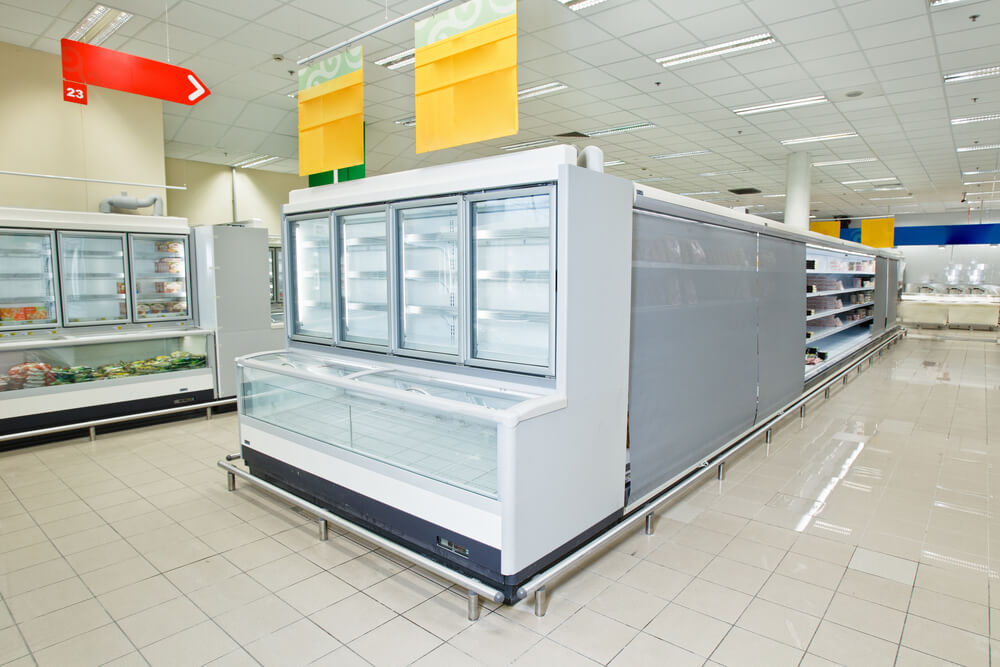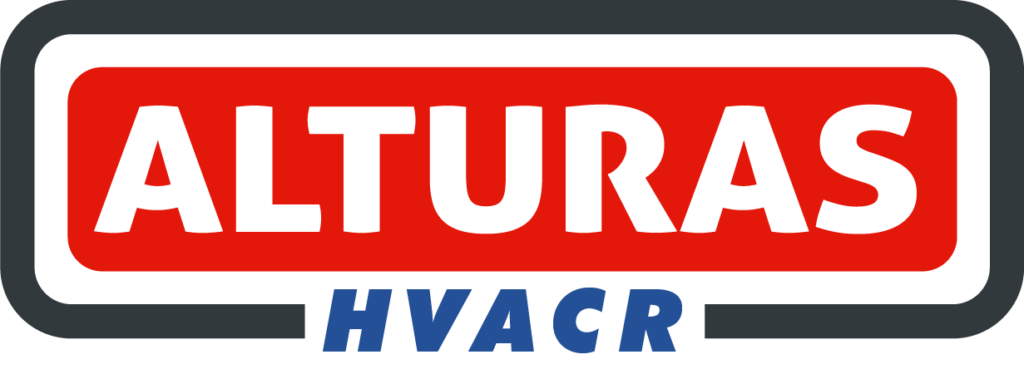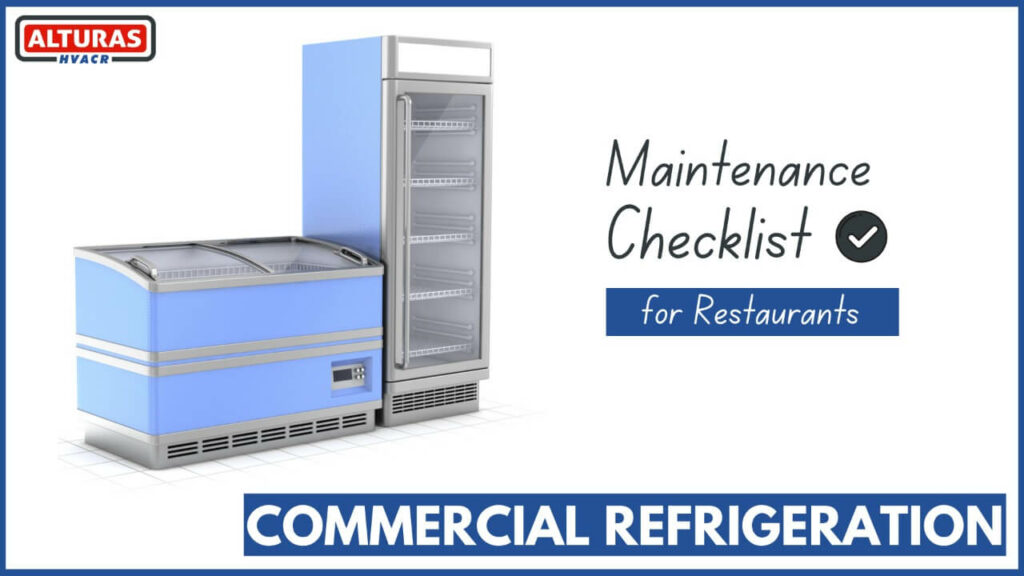The festive season in Los Angeles is around the corner, and you are gearing up to host customers and offer them scrumptious bites in your fancy restaurant, but a misfortune happens, and your commercial refrigerator starts to malfunction. To save yourself from this tragic happening that leads to the ruin of your plan, it is always best to perform some preventive measures to ensure their high-level functionality for your commercial refrigeration.
Your refrigerator is a significant financial investment for your business. Repeatedly facing the problem of appliance failure and replacing them with a new one can cost you an arm and a leg. However, it is not a problem anymore as we have got you covered by our team at Alturas Contractors, who are just a call away to provide you with walk-in freezer repair Los Angeles and routine inspection services for your commercial refrigerators at your door-step and to ensure that your refrigerators are in the best shape possible.
This article will share an important preventive maintenance checklist for your commercial refrigerators that can help you inspect your refrigerator before calling for repair service.
Preventive Maintenance Checklist for Commercial Refrigeration

Monitor The Temperature
Keeping an eye on the temperature controls and defrosting settings is vital to ensure the appliance’s optimum performance level. Too high temperatures can cause bacteria growth that can lead food to spoil, compromising the public’s health. Too low-temperature settings or defrosting more than is required can cause your appliance to work harder than usual, decreasing the overall life expectancy of the appliance.
Thorough Internal and External Cleaning
A thorough Internal and external cleaning of the refrigerator now and then is an important preventive maintenance tip to increase the refrigerator’s life span. Blockage by debris can cause a strain on the unit, causing the appliance to overheat, increase power consumption and run inefficiently. Deep-cleaning your refrigerator often is the solution.
Use a vinegar solution or a soft brush, then scrub the shelves and compartments with warm water. Cleaning the interior and exterior of the refrigerator with some mild solution will prevent scratches. Never use steel wool, bleach, abrasive scrubbers, or harsh chemicals on the surfaces. Ice-makers should be cleaned at regular intervals to avoid any mold contamination. Once in a while, a thorough cleaning will also let you figure out any leakage or damage.
Clean Condenser And Evaporator Coil
Cleaning the coils regularly is an essential part of your commercial refrigeration preventive maintenance checklist. Condenser and evaporator coils are located near the unit condenser. It emits heat outside that is generated by the refrigerator. A build-up of dirt and debris, if the refrigerator is placed near air fryers or stove obstructs the flow of heat through the coils. It affects the performance of the refrigerator causing overheating and compressor failure.
Coils can be cleaned with a commercial condenser coil cleaner, or an air compressor or you can refer to the appliance manual that contains the degreasing tips of the coil. It is also recommended to get it done by a refrigerator service specialist to avoid any damage to sensitive coil fins.
Inspect The Door Gaskets And Hinges
Inspecting the gaskets for any cracks, gaps or tears in a commercial refrigerator from time to time is inevitable. You can check by inserting a dollar bill and closing the door. If the dollar bill comes out without any resistance, it indicates that your refrigerator’s door is not sealed properly.
Any tear in the gaskets or broken or misaligned door hinges and latches can cause cold air to escape and warm air from outside to seep into the refrigerator resulting in a load on the refrigerator’s compressor to maintain the optimum temperature. To avoid this inconvenience, the gasket needs to be checked and door hinges should also be lubricated from time to time to ensure tight seal of the refrigerator’s doors.
Clean Air filters And Fan Blades
Dirt and grease from kitchen fryers and stoves can accumulate on the fan blades in a commercial refrigerator, hindering air ventilation and slowing down the motor. A degreasing solution should be used to eliminate the grease now and then. If you notice splits in your debris then you may have to change the air filter.
Most Common Refrigerator Problems
Clean The Drain Lines
Drain lines are one of the most overlooked areas in the refrigerator that demands regular maintenance. Commercial refrigerator drain lines get clogged now and then due to slime and clag. If the drain pipe overflows, it emits a pungent smell all across the kitchen causing embarrassment in the presence of the customers in a restaurant.
Cleaning the pan regularly is inevitable to maintain the performance of the refrigerator and avoid any significant blockage. It is recommended to get the drain pipes cleaned by a service technician who uses specialised equipment.
Keep The Unit dry
Accumulation of moisture inside the shelves or the reach-in units can cause your refrigerator to freeze up over time, thereby inhibiting its overall performance. Make sure to wipe off any spills or water in the unit regularly.
Avoid Mold And Contaminated Ice
Prevent mold and contaminated ice in commercial refrigeration by regularly cleaning and sanitizing ice makers and storage areas. Maintain proper temperature and humidity levels, promptly repair leaks, and ensure good ventilation. Establish a strict cleaning schedule, use food-safe sanitizers, and educate staff on hygiene practices to safeguard against mold and contamination issues.
Check For Leaks And Test Seals
Commercial refrigeration maintenance involves several crucial steps, and checking for leaks and testing seals is a fundamental aspect. This process ensures the system’s efficiency and prevents energy wastage. Detecting and repairing leaks promptly can save costs and maintain the integrity of your refrigeration unit. Regular inspections for leaks and seal tests contribute significantly to prolonging the lifespan of your commercial refrigeration system while ensuring optimal performance.
Also Read: How to Clean a Walk-in Freezer?
Professional Maintenance for Commercial Refrigeration

If you don’t have the proper equipment and tools for commercial refrigerator maintenance, it is always recommended to have a professional commercial refrigeration expert come to your place and get a thorough inspection of your commercial refrigerator.
Alturas Contractor’s has got your back in this regard. We are successfully providing maintenance services in Los Angeles and California. We offer not only design and installation but also refrigeration maintenance services so you may focus on your business rather than equipment upkeep. We provide you with a trustworthy walk-in refrigerator repair service that works around your schedule.
Following the above commercial refrigeration preventive maintenance checklist regularly will ensure many years of uninterrupted commercial appliance usage and guarantee improved appliance performance.
Advantages of Regular Refrigeration Maintenance
- Save costs: Periodic maintenance cuts energy bills prolongs appliance life, and ensures product quality/safety.
- Enhance longevity: Regular upkeep extends commercial fridge/freezer lifespan, ensuring product safety/quality.
- Cost-efficient: Preventive maintenance reduces expenses, extends appliance life, and ensures product safety/quality.
Commercial Refrigeration Maintenance Checklist FAQs
How To Clean Refrigerator Coils?
To clean refrigerator coils, first, unplug the fridge. Locate the coils either behind or beneath the appliance. Gently vacuum or brush off dust, dirt, and debris buildup. Use a coil cleaning brush or a long, soft brush to reach tight spaces. Clean coils every 6 months to maintain cooling efficiency and extend the appliance’s lifespan.
What Temperature Should A Commercial Fridge Be?
A commercial fridge should maintain an internal temperature of 34 to 40 degrees Fahrenheit (1 to 4 degrees Celsius). This range ensures the safe storage of perishable items and prevents bacterial growth. Regularly monitor and adjust the temperature using a reliable thermometer, and ensure proper door sealing to maintain consistent cooling and uphold food safety standards.
How Often Should A Commercial Refrigerator Be Serviced?
A commercial refrigerator should be serviced every 3 to 6 months. Regular maintenance includes cleaning coils, checking door seals, inspecting motors, and testing temperature accuracy. Proper servicing helps prevent breakdowns, ensures efficient cooling, and prolongs the appliance’s lifespan. Additionally, address any sudden issues promptly to avoid disrupting operations and compromising food safety.
How Do You Clean The Inside Of A Commercial Refrigerator?
To clean the inside of a commercial refrigerator, first, remove all the items. Use a mixture of mild detergent and warm water to wipe down shelves, walls, and surfaces. Pay attention to spills and stains. Rinse with clean water and dry thoroughly. Return the items once everything is cleaned and sanitized.
How Do You Clean Commercial Refrigerator Condenser Coils?
To clean commercial refrigerator condenser coils, first, unplug the unit for safety. Locate the coils, typically at the back or bottom. Gently brush away dust and debris using a coil brush or a vacuum cleaner with a brush attachment. Keep coils clean every 3 months to maintain optimal cooling efficiency.
Why Is My Commercial Refrigerator Freezing?
A commercial refrigerator might freeze due to a faulty thermostat, incorrect temperature settings, blocked airflow, or a malfunctioning defrost system. Check and adjust the thermostat, ensure proper airflow by not overloading shelves, and inspect the defrost system. If issues persist, seek professional assistance to diagnose and repair the problem.

